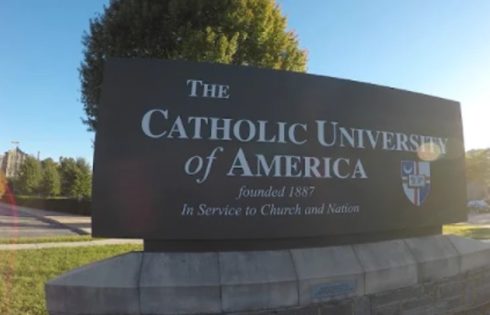
OPINION
On the evening of Aug. 28, about 150 Coloradoans descended on the University of Colorado Old Main building to hear Steven Hayward speak about the dearth of conservatives in academia, and why it matters.
Hayward recently began his stint as the Visiting Scholar in Conservative Thought and Policy at the University of Colorado at Boulder, well-known for its left-leaning tendencies.
Hayward’s talk received fair-to-positive coverage in both the Boulder Daily Camera and the left-wing outlet, Colorado Independent. Still, when the question and answer session was over and the attendees shuffled through the double doors, grumblings of discontent could be heard. The dissatisfaction stemmed from the speaker’s fumbling of requests to define “conservatism.”
As a CU Boulder philosophy Ph.D. student and a conservative, I held high hopes for the talk. I was, and remain, strongly sympathetic to the Hayward’s message about the need for more ideological diversity on campus, and hoped he would bring others to my point of view.
I speak as someone who twice applied for graduate programs using personal statements with sentences like, “I am also interested in conservatism and the thought of Edmund Burke, especially his idea of the social repository.” Both times advisors at two different institutions warned me to delete this bit, lest I undermine my credibility.
That such advice would be given by competent advisors suggests that the left-leaning tendencies of academia can sometimes translate into close-mindedness to conservative ideas.
I can understand the view that diversity of sex, sexual orientation and race matter to quality of education, and I can understand the view that diversity of any kind is irrelevant for quality of education. What flummoxes me is the apparently orthodox view that diversity of these things matters a great deal, while diversity along the left-right spectrum matters not one whit.
I harbor the strong suspicion that my left-leaning cohorts would be of a different opinion if the boot were on the other foot, and academia leaned very heavily to the right. But I digress.
When Hayward entered the Old Main building, he was escorted by men in Hazmat suits, leather-strapped to a board like Hannibal Lector, and muzzled to prevent him from biting off the ear of any liberal who might foolishly lean in hoping to hear him whisper the alchemical secrets of supply-side economics.
Perhaps I exaggerate slightly. In fact, when I walked into the Old Main building ten minutes or so before the talk began, I found Hayward sitting next to Philosophy Professor Robert Pasnau, talking amicably. The event had been well-advertised in the philosophy department, and quite a few professors and students were in attendance. The skeptical attendees appeared willing to give Hayward a chance.
Hayward peppered his talk with witticisms, quotes and amusing anecdotes to which the audience seemed responsive. But sometimes it was too much. It was easy to feel lost in the maze of tangents.
In addition, Hayward spoke often in generalities; details were scarce. Nonetheless, I distilled the following take-away points.
Hayward proffered two tentative answers to the question: “Why there were so few conservatives in academia?”
First, people with conservative-leaning personalities tend to be attracted to non-academic – and often more lucrative – career paths. Second, the general decline of the humanities, and the permeation of the humanities with ideas, turns conservative students off.
His argument for “why it matters” was similar to the one I gave. Ideological diversity invigorates dialogue and adds competition to the currently monopolized market of ideas. Not a terribly surprising or original argument, perhaps, but none the worse for it.
The Q&A provided Hayward with an opportunity to fill in the details, but the results were disappointing. Philosophy Professor Michael Tooley, who sat immediately to my right, noted that conservatives are under-represented in physics, a result that could not be explained by any trend specific to the humanities. The point seemed to catch Hayward off-guard.
What’s worse is that Hayward, to the audience’s steadily increasing consternation, repeatedly deflected requests to define conservatism. By no means did the requests come only from hostile questioners; one was even a self-identified conservative who wanted a succinct definition of conservatism to share with his teenage daughter.
In response, Hayward rattled off a list of various kinds of conservatism and described their particularities without defining the common thread. Based on his answers, and my brief discussion with him afterward, I surmise that his reticence was due to a concern of giving a definition that would exclude one or more of these groups.
Be that as it may, the deflections galled many in the audience. Eventually, Hayward was prodded into giving an indirect definition of conservatism as the loyal opposition to liberalism that the Boulder Daily Camera article quoted. It seemed too little, too late.
When the Q&A session was over, I took it upon myself to fill the gap, and I briskly walked to the front of the room and intercepted as many of the questioners as possible to tell them what I thought the correct definition of conservatism was: “Conservatism is the political ideology according to which the primary goal of politics is the preservation of value in existing, long-standing institutions and arrangements.”
Conservatism is to society what conservationism is to the environment. Societies that have developed over time are like ecosystems, and even well-intentioned attempts to alter them drastically are likely to disrupt their processes in ways that we don’t understand. This doesn’t mean that everything inherited is good, but it does mean there is a strong presumption against changing things that have stood the test of time.
This of course requires quite a lot of elaboration, maybe even a dissertation’s worth.
The audience seemed to leave Old Main appearing more exasperated than before they came in. Not the result I’d hoped for, but there may be a silver lining. It comes in the form of a lesson for Hayward and other beleaguered conservatives on left-leaning campuses: if you want to persuade people, you must be able to clearly and succinctly communicate what your point of view is, and why you hold it.
If you can do that much, and do it effectively, you’re halfway to persuading your interlocutor. If you can’t, he’s likely to continue wondering why you aren’t being escorted by men in Hazmat suits.
Fix contributor Spencer Case is a philosophy graduate student at the University of Colorado. He is a U.S. Army veteran of Iraq and Afghanistan and an Egypt Fulbright alumnus.
CLICK HERE to Like The College Fix on Facebook / TWITTER @CollegeFix





Please join the conversation about our stories on Facebook, Twitter, Instagram, Reddit, MeWe, Rumble, Gab, Minds and Gettr.